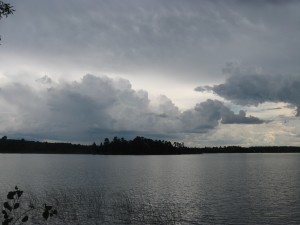The tree crew is here today. They came with a big truck and a chipper and had a difficult time lining up the truck to pull through the pasture gate and then turn around so the truck is heading down the drive. I stopped watching and went into the house. For the past two hours the team of three has been up the big maple tree in my back yard—well, two are up the tree, I think, and one on the ground. That tree is a glorious color in the fall, and then drops a thick load of leaves over my shade garden. For the past few years it has taken to dropping branches unexpectedly. Last month after a wind storm I discovered a very large branch had fallen next to the glider I had bought and put together in 2015 to honor what would have been my 50th wedding anniversary—-we made it to our 45th anniversary before Bill’s death. That heavy branch smashed a plastic side table and would have squashed me, had I been under it.
But I love that maple tree nonetheless. Bill and I planted it in 1978, the year after we moved here. We also planted the two willow oaks and the pear tree….too close to the house…and then a long list of other trees, some we planted, others planted by landscapers. Not all the trees have survived, but I think we planted over thirty trees on this property, and the edges of the lot are ringed with wild native trees, including hickory, persimmon, wild cherry, eastern red cedar, and tulip poplar.
I grew up loving trees. I have early memories of the birch trees with their shimmering branches at our cabin northern Minnesota. My mother hung a hammock for me between two birches to the west of the cabin. I was three when I first rocked in that hammock, toes reaching for the blue sky and singing to myself. My father would come along and say, “What are you thinking about, CheeChee?”—-the name I called myself before I could pronounce Kristin. But I was thinking about everything and nothing.
There were tall straight Norway pines at the cabin, too, more stately than my sister birches. On the hill above the cabin there was a Norway that I climbed when I was nine or so, with the neighbor kids. A young sapling grew up next to it, and I could shinny up the sapling and then grasp the lowest branch of the Norway and swing up onto that first branch. And from there pull myself from one branch to the next until I was high enough to see over the other trees and across the lake. I remember hanging onto the branches high in the tree, feeling the wind on my face and hearing the cry of the loons, thinking myself invincible.
During that same time period we were living in Fort Knox Kentucky, in military rowhouses encircled by red clay, and there were few if any trees to climb there until we moved into a rambling house next to an old fenced cemetery and surrounded by military barracks. But there was a big sassafras tree in the backyard, perfect for me to climb, with a low enough branch to start me upward and a very comfortable branch for me to sit on and sulk when I was mad at my mother…which seemed to be often during that time. I was in seventh grade. I liked to chew the young sassafras leaves and small twigs and smell the bark…it smelled like the South and summer.
By the time I was in high school I had stopped climbing trees but I never stopped loving them. Their dangerous beauty surrounds my house now, and in the late summers each year I return to the Minnesota cabin, and sitting in the hammock I sing to the birches my sweet songs.
February 16, 2024
